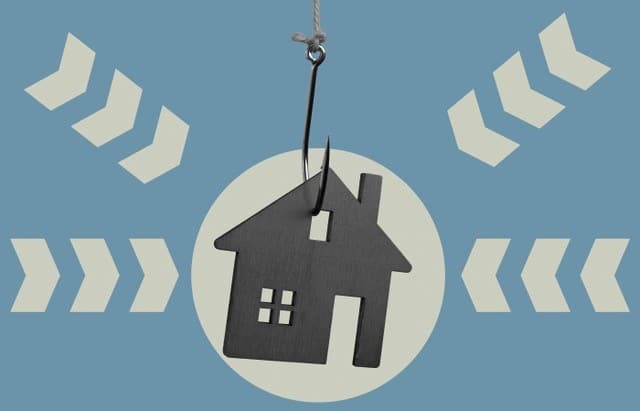Home Equity Loans and Lines of Credit are excellent financial tools that allow homeowners to leverage their home’s value for renovations, debt consolidation, or major purchases. These loans often come with lower interest rates than other financing options, making them attractive to borrowers.
However, homeowners — especially those with significant equity — can become targets for scammers. Fraudsters might attempt to manipulate homeowners into using their home equity for fraudulent schemes or even place illegitimate liens on properties to block sales or financing. Below are some common scams to watch out for and how to protect yourself.
Common Home Equity Scams
With the potential for significant financial gain, home equity can attract scammers. These are the most common scams you need to be aware of to safeguard your assets and avoid becoming a victim.
- Loan Flipping
A predatory lender persuades a homeowner — often an elderly individual — to repeatedly refinance their mortgage. Each refinance may offer cash and a lower monthly payment, but the scam lies in excessive fees and closing costs that erode the homeowner’s equity over time. - Equity Stripping
A scammer pressures a homeowner into taking out a home equity loan or line of credit that they cannot afford. Once the homeowner defaults on payments, the scammer seizes the opportunity to acquire the home at a below-market price. - Home Improvement Scams
A contractor provides a high-priced quote for home improvements. If the homeowner cannot afford it, the contractor connects them with a specific lender to borrow against their home’s equity. Once the loan is secured and funds are disbursed to the contractor, the contractor disappears without completing the work. - Fraudulent Liens
Liens are a legal claim that gives someone the right to take your property if you don’t pay a debt. For example, when you buy a house with a mortgage, the bank has a lien on it. If you stop paying on your mortgage, the bank can take your house. Scammers may file false liens on your home, putting a fake debt on your house records, for services never performed, inflated charges, or falsified claims. These liens can block a homeowner from selling or refinancing their home and are often difficult to remove.
How to Protect Yourself
Protecting yourself from home equity scams requires vigilance and knowledge how to prevent them. Explore these strategies to proactively protect yourself from falling victim to scammers.
- Research the organization you are using to obtain a home equity loan. A legitimate financial institution will be federally insured through the FDIC or NCUA and should be registered with state financial regulatory agencies. Check the organizations Better Business Bureau page for ratings, reviews, and complaints.
- Research the contractor who you are planning on using. Visit their website and the Better Business Bureau to confirm their legitimacy.
- Consult a HUD-approved housing counselor. They can provide guidance on legitimate financing options. Visit the US Department of Housing and Urban Development online for a list of nationally approved agencies.
- Speak with your mortgage or loan provider. If you are seeking a home equity loan or line of credit, it’s a good idea to research your options with your mortgage provider or a financial institution that you have worked with before and trust. Book an appointment with one of our experts to discuss the options we have available.
- Carefully review all documents. Never sign anything without understanding the terms.
- Verify liens before taking action. Contact the lienholder to confirm the validity and request removal if necessary.
- Seek legal advice. An attorney can help protect your rights and guide you through resolving fraudulent claims.
- Get quotes from multiple contractors. Obtaining multiple quotes can help you identify the competitive pricing range and avoid overpaying for a project. It allows you to compare pricing, assess the scope of work, and evaluate the quality of materials and services offered. Once a contractor is selected, always ensure agreements are in writing before proceeding with any home improvements.
- Trust your instincts. If a deal sounds too good to be true, it likely is.
Stay Vigilant and Protect Your Home
Your home’s equity is one of your most valuable financial assets — don’t let scammers take advantage of it. By staying informed and cautious, you can safeguard your home and finances. If you suspect fraudulent activity, act quickly by consulting trusted professionals, legal experts, and your financial institution.
Ready to explore home loan choices safely and confidently? Book an appointment with Centris today to discuss your loan options and protect your valuable investment.
Federally Insured by NCUA. Equal Housing Lender.




